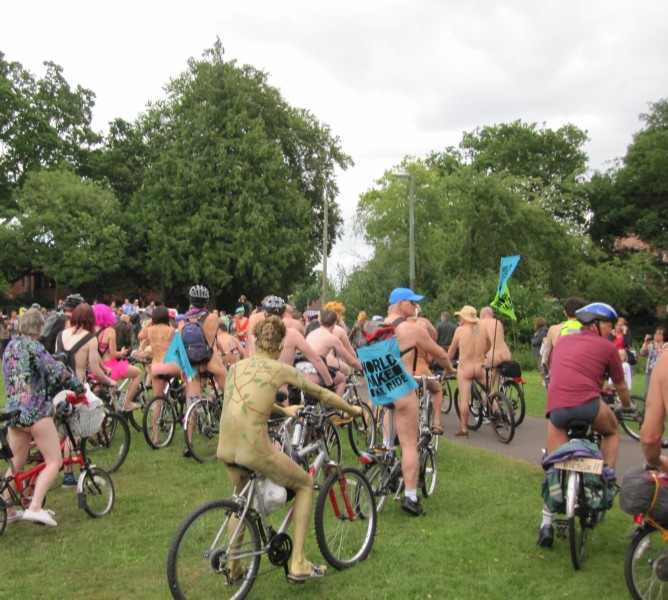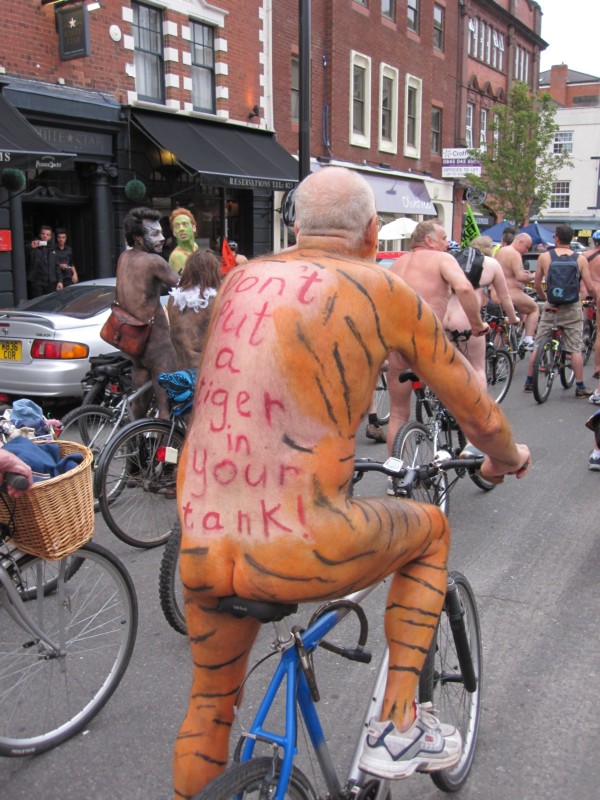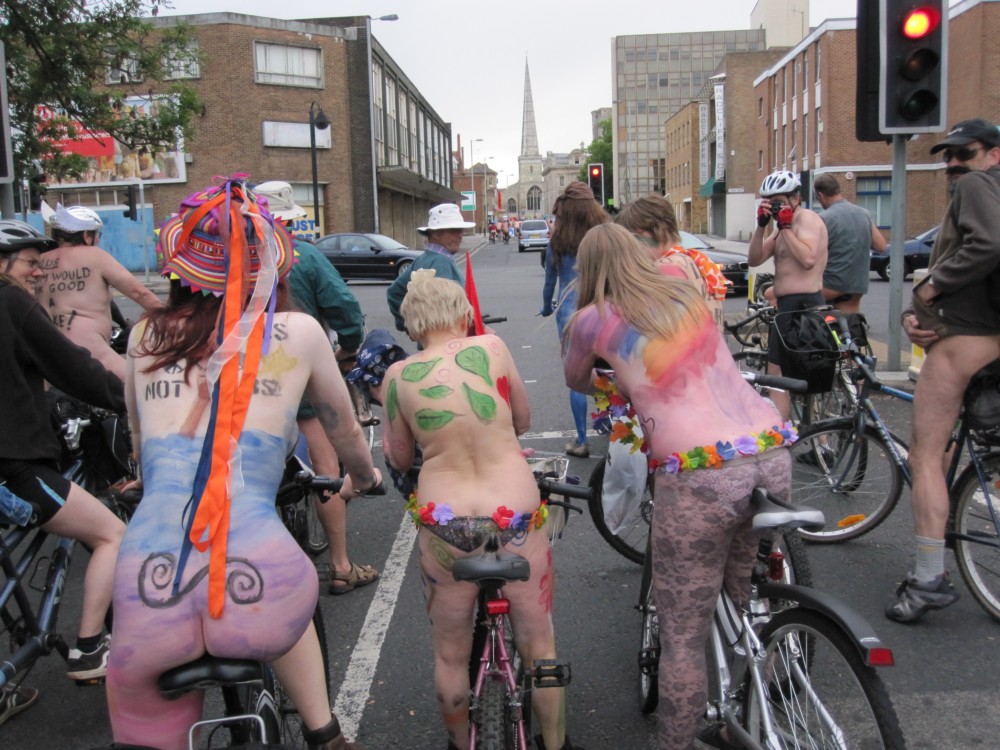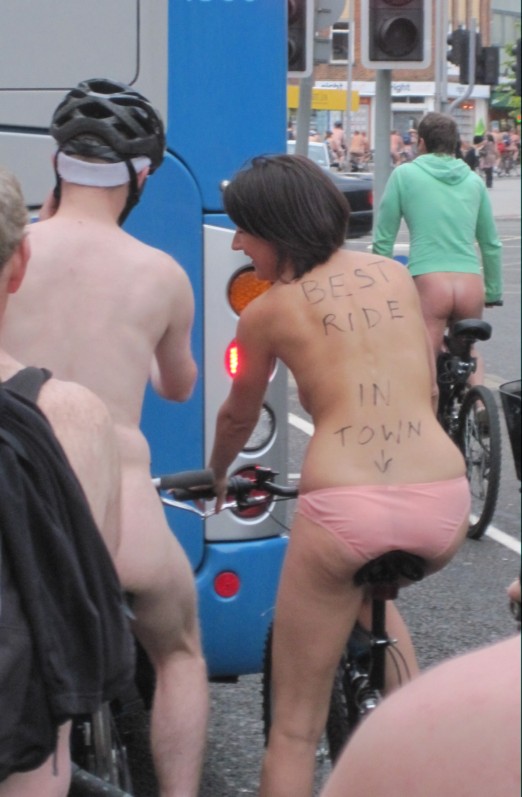Author Archive
Review – The War On Britain’s Roads (BBC 1, Wednesday 5th December)
Note - if you're in the UK you can watch the programme on iPlayer here.
I should probably start by saying that I'd seen a fair amount of publicity for this program (specifically this, this and this), and I was watching with a view to complaining to the BBC about it. Having watched it, I have to say it was nowhere near as bad as I feared it would be, but it could have been much better. In short - I'm not angry, just disappointed.
The programme starts with Gareth, a 24-year old cyclist. He initially comes off as a bit arrogant. A little bit later he's shown antagonising a taxi driver by banging on the side of his taxi when it passes a little bit too close. He says with a smile, "I've noticed if you touch someone's vehicle they get very possessive about that". So it appears that he knows exactly what he's doing. While I understand the point he makes - that if you can touch someone's car as they overtake you, then they haven't given you enough room - I don't think it's a particularly smart thing to do. Since the documentary aired Gareth has said that he felt it misrepresented him. Gareth's YouTube page is here.
The next section is Mark, a traffic policeman on a bicycle. This was quite interesting as we see him chase down a motorcyclist that fails to stop. While there are a couple of scary manoeuvres he seems highly skilled and in control. We also see him pulling over drivers and cyclists for minor traffic offences. There are lots of cyclists jumping red lights, Mark points out "it's not the crime of the century, but it could get you killed".
Next up is a woman who's daughter was killed while cycling, she was crushed by a cement mixer which turned left across her. This was quite an inspirational story as we hear about her campaign for better safety standards. She starts by buying shares in the company so she can speak at their Annual General Meeting, this leads to the company improving the training its drivers receive and installing proximity detectors on the sides of its vehicles.
Next there are two incidents caught on helmet camera. First there's a very scary video from Glasgow. As a cyclist approaches a roundabout a truck travelling at speed fails to give way. The cyclist slams his brakes on and the truck misses him by a few centimetres. It's absolutely terrifying (it's on YouTube here). The second incident was a road rage attack by a driver on a cyclist. The video was posted on YouTube and widely reported in the press, which led to the driver being identified and prosecuted.
The Traffic Droid is the next section. While the programme describes him as "policing the situation himself", in reality he's a cyclist who videos poor driving (and cycling) and posts it online. We see him videoing drivers who are using mobile phones and iPads and handing them flyers with his YouTube address on. He describes how he started filming traffic violations after being knocked off his bike 3 years ago, he breaks down and cries as he talks about it.
Finally we see footage of a courier race across London. The cyclists ride in what can only be described as an aggressive and nearly suicidal manner. It's this short section that seems to have caused most of the controversy, and it's not hard to see why. The sheer recklessness is breathtaking, but it's so far removed from the typical behaviour of the average cyclist. It appears to have been included simply for shock value.
In summary, I have mixed feelings about this documentary. The section about cement mixer safety I thought was positive, as it highlights a particular danger to cyclists and shows that if the will is there then these issues can be tackled. I thought the section with the cycling traffic policeman was interesting and it was also good that it showed him being even-handed in his dealings with cyclists and drivers. His clam approach and ability to defuse situations was a marked contrast to some of the other participants in the documentary.
I felt the central premise of the documentary, a war between cyclists and drivers, was flawed. The majority of cyclists are also drivers - 87% of British Cycling members own a car and the president of the Automobile Association is a keen cyclist. How can two groups be at war when so many people belong to both groups? I thought the other main failing of the documentary was a lack of context. For example a few cycling accident and death statistics were mentioned, but there was no comparison to other activities such as walking, or to accident and death statistics for cycling in other countries. The documentary would have left viewers with the false impression that cycling on Britain's roads is a very dangerous activity, I hope my mum hasn't watched it.
I also felt that the documentary missed an opportunity to discuss cycling facilities and road layout, which can be a cause of conflict between cyclists and drivers. There were a few incidents shown were a cyclist in a narrow cycle lane was overtaken by a vehicle which passed closely to the cyclist without actually moving into the cycle lane. One of the road rage incidents shown occurred after a driver was unable to overtake a cyclist through a traffic calming system.
World Naked Bike Ride 2011 – Southampton
I took part in this year's World Naked Bike Ride. The ride is a celebration of cycling and the human body and also aims to highlight the vulnerability of cyclists on the road.
At the Southampton ride there were about 150 riders, which is a pretty good turn out for a cold Friday evening. The dress code was "bare as you dare"--some dared more than others.
We rode around Southampton and got an overwhelmingly positive response from car drivers, pedestrians and other onlookers. We managed to get some favourable media coverage and hopefully we helped raise the profile of cycling a little.
The 2012 World Naked Bike Ride will take place in March in the Southern Hemisphere and in June and July in the Northern Hemisphere. More details are available at www.worldnakedbikeride.org.




